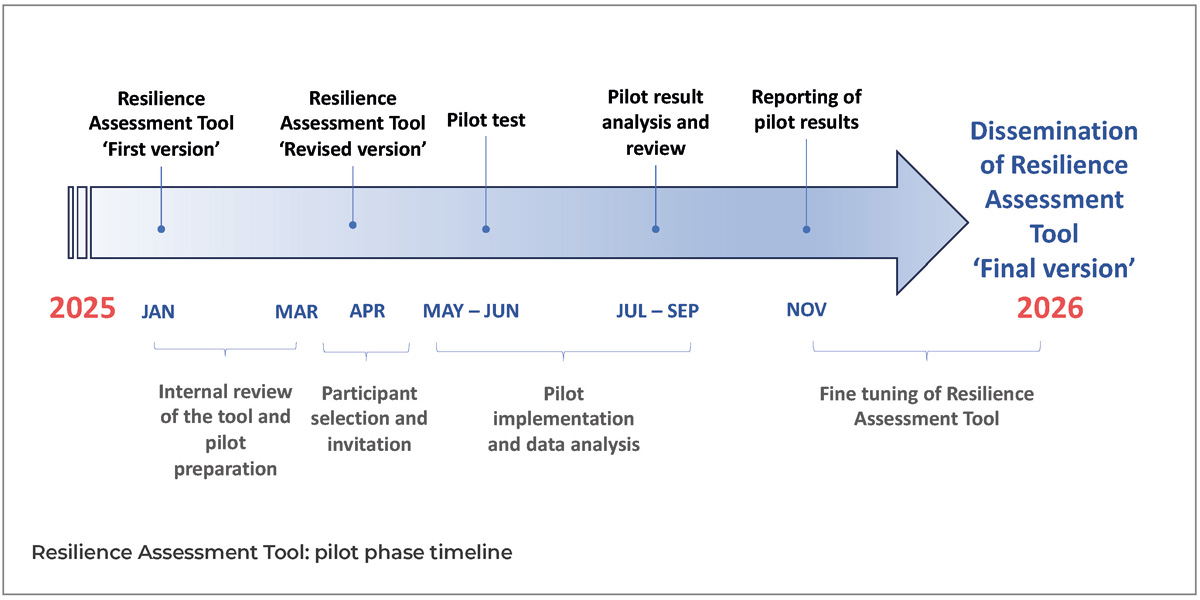20 May 2025
EuroPCR 2025: RESIL-Card achieves a major milestone - The resilience tool is ready for pilot testing!
Launched in December 2023 by our community through the ‘We CARE Alliance’ and co-funded by the EU4Health work programme, the mission of the RESIL-Card project is to ensure that essential healthcare services for people with cardiovascular (CV) diseases are maintained during crises. Specifically, the project aims to develop and deliver a resilience assessment tool to provide guidance to all European CV stakeholders for evaluating and improving the preparedness of their CV care pathways to withstand shocks affecting healthcare delivery.
William Wijns, PCR Chair, who is leading the consortium explains:
“Since last year, the RESIL-Card project has made tremendous progress, with a number of important steps completed, which have culminated in the creation of the first version of the resilience assessment tool.”

The initial step involved diagnosing continuity of care issues that arose during the COVID-19 pandemic, with multiple stakeholders involved in discussing key barriers/facilitators and best practices. Following a scoping literature review and a large-scale survey of members of the PCR community, five online focus groups were convened: two regional (Campania and Lombardy, Italy), two national (Spain and the Netherlands) and one international (other EU countries). Focus group participants included patient representatives, general practitioners, physicians and other professionals from acute and chronic cardiac care units, heads of cardiology departments, head nurses, allied professionals, hospital managers and members of health advisory organisations. The discussions were centred on six key resilience dimensions:
- The workforce
- Care delivery
- Governance and trust
- Communication and cooperation
- Medical devices and products
- Data collection and use
Key themes identified during the exchanges included reallocation of health staff and their health protection, infrastructure repurposing to increase bed capacity, supply chain management, improving communication with the population and among healthcare professionals, and decision-making tools.
Based on this work, the first version of the Resilience Assessment Tool was delivered as planned at the end of January 2025. Real-life pilot testing is now underway in acute care hospitals, mostly in Italy and Spain, to evaluate its components and functionality. A key aspect is to ensure usability – the tool must be intuitive and accessible for professionals from different backgrounds and healthcare settings. Participants’ feedback will also focus on how the tool applies in real-world practice and whether it helps them to better assess and improve resilience in their own context. A specific questionnaire will be distributed to non-acute care healthcare professionals to gather additional insights on relevance and usefulness in broader healthcare settings. Feedback will help to refine the tool before widespread rollout across Europe in 2026.
Ahead of the official launch, the RESIL-Card consortium is currently laying the foundations for an effective communication strategy to increase visibility, for example, via presentations at national cardiology congresses. Collaboration with the EU’s Joint Action on Cardiovascular Diseases and Diabetes (JACARDI) and recent endorsements by professional bodies, such as the European Public Health Association (EUPHA), aim to support a wide dissemination of the tool and to ensure amplification and sustainable impact.
The RESIL-Card consortium would like to thank everyone who completed the survey at EuroPCR 2024 and took part in the CardioLeague initiative. This afternoon, a collaborative session at EuroPCR 2025 provides an opportunity to find out more about RESIL-Card and to take a first look at the resilience tool. Join us to discover how RESILCard can help your centre be better prepared for the next crisis.


